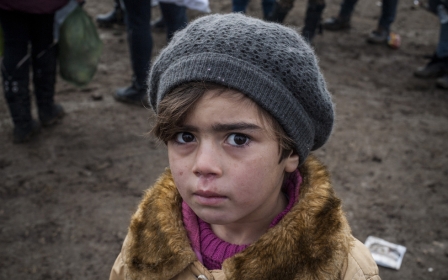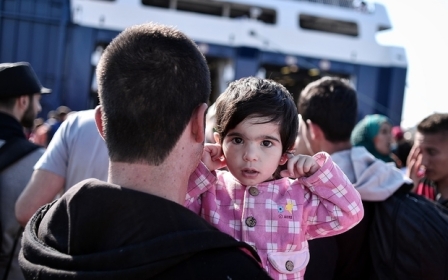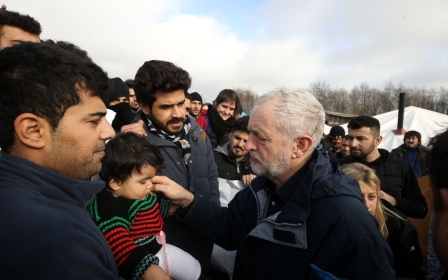Seizing valuables from asylum seekers: Denmark loses the plot and its heart

Denmark is to seize cash and valuables from asylum seekers arriving in the country, after its government won a parliamentary vote on the issue by a huge majority. The message is as clear as it is visceral: refugees are not welcome in Denmark.
All new arrivals, mostly Syrians, Eritreans and Afghanis fleeing war and persecution in their homelands, will have to submit to the indignity and invasiveness of a body search when they arrive in Denmark, as well as having their luggage searched. Refugees will only be allowed to keep up to 10,000 kroner (less than $1,500) in cash and assets. Anything above that amount will be taken by enforcement officers. Items deemed to be of value will be sold by the authorities.
Horrified reactions to the decision have reverberated around the world. For many it has evoked memories of the Jewish Holocaust.
Publicly, the Danish government’s position is that the income generated will contribute to the costs of supporting asylum seekers in Denmark, an estimated 15,000 of whom arrived in 2015. But refugees simply do not arrive seeking asylum carrying bundles of cash and expensive computers. Most have little more than the clothes they stand up in. Even for those who left home with a small amount of money, this is likely to have disappeared during their long and traumatic journeys.
And while the guidance on cash is clear, what constitutes “valuables” is more vague. In response to international criticism, the Danish Ministry of Immigration, Integration and Housing emphasised that items of “special sentimental value”, such as wedding rings, engagement rings, family portraits, decorations and medals, are exempted from the new law, although watches, mobile phones and computers are not.
What of other items? Will a family portrait housed in a silver frame be ripped out and the valuable – but not sentimental – frame sold? In practice, refugees are likely to have to go along with whatever the enforcement officers judge to be a “sentimental” item. This is likely to be a traumatic process.
The Danish prime minister argues that it is matter of principle; that those who can afford to support themselves should do so. Yet, the authorities force asylum seekers to live in austere and isolated centres. Centres are purported to be costly to operate although no public figures are available. Asylum seekers are not allowed to work while housed in these centres either. They may very well prefer to support themselves, but are prevented from doing so by the Danish state.
What’s really happening?
The reality is that this measure is intended as a deterrent; to inculcate fear among refugee populations potentially heading for Denmark. As Sweden, Austria, Germany and others in Europe implement harsher border controls, with fear and anti-immigrant sentiment sweeping the continent, Denmark has firmly placed a marker in the ground. There can no longer be any doubt about its position on the biggest European issue of the day.
In addition to the seizure of valuables, Denmark has also increased the time required before refugees can apply for family members – even their children – to join them in Denmark, something which Amnesty International points out, rides roughshod over the country’s international legal commitments.
In truth, Denmark has been sliding into xenophobia for more than a decade. Since 2002, successive Danish governments have tightened asylum controls and slashed support for asylum seekers.
By the time of the country’s 2015 election, anti-immigration sentiment had come to play a central role in political debate. The current minority government came to power with the support of an anti-immigrant platform. Even the opposition Social Democrats, led by former prime minister Helle Thorning-Schmidt, joined the anti-immigrant chorus during the campaign.
Nor is it possible to separate anti-immigrant sentiment (up to 70 percent of the Danish population are said to rank immigration as their top concern) from escalating Islamophobia within Denmark.
The new law says much about the state of Danish politics and society today. And beyond the impact it will have on refugees, it is sure to have a ripple effect across Europe.
A common European response to asylum and the migrant crisis seems further away than ever, while the long-term prospects for the Schengen agreement – arguably at the heart of the European project – are looking fragile.
By making this choice, Danes have firmly turned their backs on their country’s commitment to international law. Any memories of Denmark as one of the first champions of the Geneva Convention and as a country of tolerance have been firmly banished to the archives.
-Katharine Jones is a Senior Research Fellow at the Centre for Trust, Peace and Social Relations (CTPSR), in Coventry University. This article was first published at TheConversation.com/uk.
The views expressed in this article belong to the author and do not necessarily reflect the editorial policy of Middle East Eye.
Photo: Danish police have set up a border control point on 5 January, 2016 at the border town of Krusa bei Flensburg, after Denmark announced the immediate introduction of random controls at the German border (AFP).
Middle East Eye propose une couverture et une analyse indépendantes et incomparables du Moyen-Orient, de l’Afrique du Nord et d’autres régions du monde. Pour en savoir plus sur la reprise de ce contenu et les frais qui s’appliquent, veuillez remplir ce formulaire [en anglais]. Pour en savoir plus sur MEE, cliquez ici [en anglais].





